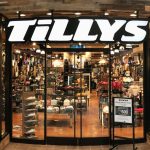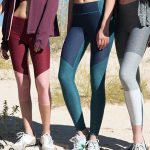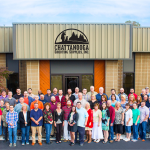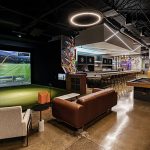Quiksilver, Inc. has executed the anticipated stock purchase agreement with the Boix-Vives family, which holds a majority interest in the Rossignol Group. When the deal, which is said to be worth approximately $320 million in cash and stock, was initially announced in late March, formal execution of the agreement was held up pending a blessing by Rossignols workers' council, or “Company Central Committee”.
The purchase of the majority holding will be paid for with approximately 30% in ZQK shares and 70% in cash, a portion of which will be deferred. The Boix-Vives family will retain a portion of its direct ownership, an approximate 35% interest in Cleveland Golf for at least 4.5 years.
The acquisition is still subject to French and other regulatory approval, but Quiksilver still expects to be successful in a public tender offer for the remaining shares not controlled by the Boix-Vives family, with the deal closing by the end of July. Quiksilver is offering $25.50 per share (19.00) for the minority shares.
The acquisition gives Quiksilver an additional $625 million in annual revenue — boosting total pro forma revenues to about $1.9 billion. But analysts quickly started to raise questions about the impact of the deal on Quiks bottom line.
Judging by Rossignols warning later last month about expected “strong losses” for their current fiscal year, the concerns may be warranted. In addition to the warnings, Rossignols first half-year report released in September, the last time Rossignol reported earnings, showed that net income had fallen 69.7% to 3.0 million ($3.6 mm) on 199.1 million ($241.8 mm) in sales.
The losses clearly were not a surprise to Quiksilver, as company CEO Bob McKnight assured analysts and the media that Quiksilver entered into the deal “aware of whats going on in the business.” Still the assurance did little to ease stress on ZQK shares, which fell 15.6% for the week to close at $29.03 on Friday.
Still, the acquisition will now give Quiksilver a total of 20 brands in its portfolio, including Rossignol skis and snowboards, Hammer Snowboards, Dynastar skis, Look bindings, Lange ski boots, Cleveland Golf, and Look clipless bicycle pedals. On a pro forma basis, about 52% of consolidated company sales will come from apparel, while winter hardgoods will be roughly 25% of the mix, and golf hardgoods will be 7% of the business. Footwear will contribute 6% of sales and accessories will make up the balance.
Quik management really sees the biggest opportunity in this acquisition in apparel. By leveraging its marketing, sourcing structure, and design team, Quiksilver feels that they can increase this dramatically. Launching Rossignol and Dynastar apparel lines are apparently top priorities for ZQK.
“We are doing $50 million (in outerwear) just by having good product and without a mountain brand to carry it through,” said Mr. McKnight. “It (the Rossignol brand) is very high-end. It is very clean, never gone down market If we can apply the apparel part to it that is where we think we can do some big volume globally.”
Quiksilver said that it should be showing Rossignol branded product to retailers within a year.
On the other side of the equation, Quiksilver also sees some upside in Rossignols hardgoods infrastructure. McKnight mentioned launching Roxy womens specific skis, which could be the first real brand to challenge K2s dominance of the womens specific ski market. Quiksilver also sees launching DC branded Snowboards, and moving their existing Lib-Tech, Gnu, and snowboard binding production into Rossignols manufacturing facility in France.
There are no major changes planned for Rossignols management team, a team that is currently working with Quiksilvers president, Bernard Mariette, on the first steps of integration. ZQK has also brought in Pierre Niermont, the COO of their Napoli division, to lead the integration team.















